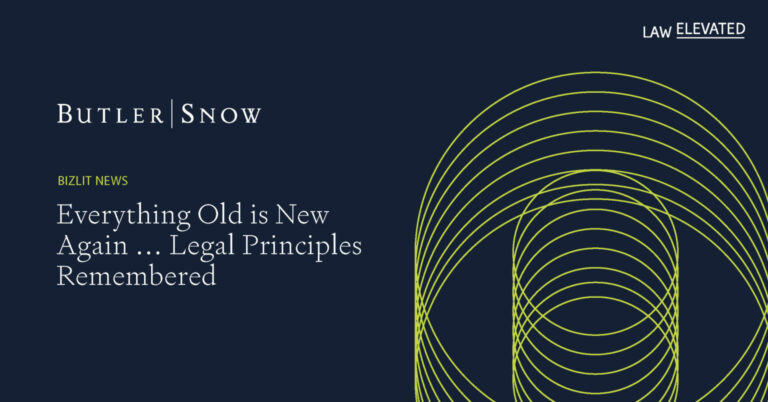Every once in a while, we’ll see an appellate decision that serves as a commercial law primer – reminding business litigators and transactional attorneys of basic legal principles that sometimes are not precisely recalled because of their ubiquitous usage. One such case is the 43 page opinion, Commercial Painting Company, Inc. v. The Weitz Company, LLC, et al., Case No. W2019-02089-COA-R3-CV, Tennessee Court of Appeals, decided March 11, 2022.[1] Here are some of the principles revisited by the Court in Commercial Painting:
- A “prevailing party,” by contract, may be entitled to recover legal fees and costs. But which party has “prevailed” at trial or on appeal is determined by the court. The plaintiff “prevailed” at trial, obtaining a jury verdict of $1.8 million in compensatory damages and $3.9 million in punitive damages. Only the compensatory damages award was sustained on appeal, so the defendant was determined to be “prevailing party” for purposes of the appeal. Thus, the trial court, on remand could only award plaintiff’s fees and costs related to the compensatory damages award.
- If the litigants’ relationship is governed by a contract, the “economic loss” rule may preclude recovery in tort. “It has been described as a judicially-created remedies principle that operates to preclude contracting parties from pursuing tort recovery for purely economic or commercial losses associated with the contract relationship.” Tracing the development and acceptance of the doctrine, the Court noted that Tennessee recognizes a limited fraud exception to the economic loss doctrine, and that it applies outside the products liability context when the contract was negotiated by sophisticated commercial parties.
- Punitive damages are recoverable for breach of contract only in the most narrow and limited circumstances, and in the most egregious cases “… a plaintiff must prove the defendant’s intentional, fraudulent, malicious or reckless conduct by clear and convincing evidence.”
- Parties can contract to limit the damages recoverable from a breach of contractual duty. There are exceptions for fraud, indemnities in construction contracts, medical settings and landlord/tenant relationships. The parties to a contract may also consensually bar any claims for punitive damages.
- In addition to contractually limiting recoverable damages, the parties may contract to limit the recovery of pre- and post-judgment interest on damages awards.
- A party may pursue alternative remedies for breach of contract or quantum meruit, but may not receive a “double recovery” or “double redress for a single wrong.” The election of remedies, to avoid a double recovery, may occur even after a jury verdict.
[1] This was the third appeal in the case. Perhaps, the Court was driving nails into a coffin?
